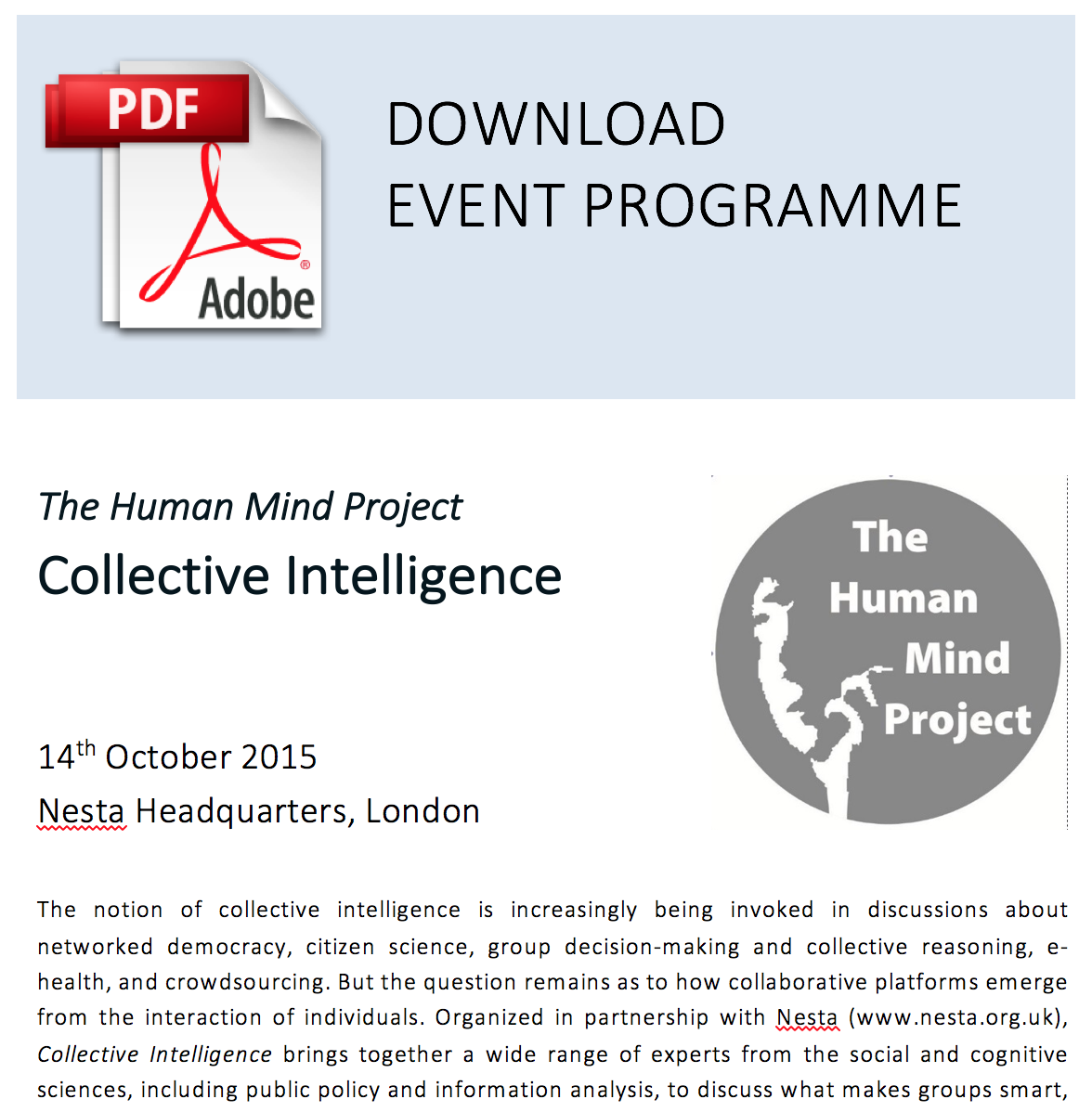Collective Intelligence
14 October 2015 | Nesta, London
The Human Mind Project joined forces with Nesta to hold a one-day workshop on recent research on collective intelligence.
Collective intelligence is now central in discussions about networked democracy, citizen science, group decision-making, e-health, and crowdsourcing. These discussions cut across a wide range of disciplines, from the social and cognitive sciences to public policy and information analysis, but the question remains as to how collaborative platforms emerge from the interaction of individuals.
What makes groups smart? And how can networked publics generate results that single agents cannot achieve individually?

Description
Emerging social movements in various regions of the world are producing new forms of digitally-mediated citizen participation. What are the implications of direct digital democracy? How do these new forms of digitally mediated collective deliberation work?
• Paolo Gerbaudo, King’s College London
• Arnau Monterde, Open University of Catalonia
Description
What makes groups smart, and how can interactive dynamics generate results that single agents cannot achieve individually? This round table discussion brings together contributions from the social and cognitive sciences to discuss the structure and function of the social mind.
Moderated by: Dr Mattia Gallotti, The Human Mind Project, University of London
• Professor Chris Frith, UCL and School of Advanced Studies, London
• Professor Robin Dunbar, University of Oxford
Description
An argumentative theory of reasoning suggests that reasoning evolved to argue with others and that we are better at reasoning in groups than alone. How do processes of collective deliberation work?
Video includes:
• Hugo Mercier, University of Neuchatel, The argumentative theory of reasoning
• Bahador Bahrami, University College London, Metacognitive processes in collective decision-making
Description
Theories of distributed cognition and extended cognition can provide a background with which to reflect upon the crucial role of technology in the processes of collaboration and joint activity.
Video includes:
• Orestis Palermos, University of Edinburgh, Extended group knowledge
• Licia Capra, University College London, Quantifying bias in spatial crowdsourcing datasets
Description
Professor Sir Colin Blakemore, University of London
Speakers
Bahador Bahrami (London), Colin Blakemore (London), Licia Capra (London), Robin Dunbar (Oxford), Chris Frith (London), Paolo Gerbaudo (London), Hugo Mercier (Switzerland), Arnau Monterde (Barcelona), Geoff Mulgan (London) & Orestis Palermos (Edinburgh).
Programme & Organisation
Collective Intelligence was jointly organised by the team of The Human Mind Project and Nesta. An inclusive hub for the facilitation of interdisciplinary dialogue and enquiry, The Human Mind Project aims to define the major intellectual challenges facing research on the human mind. Nesta is an innovation charity with a mission to help people and organisations bring great ideas to life.


